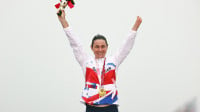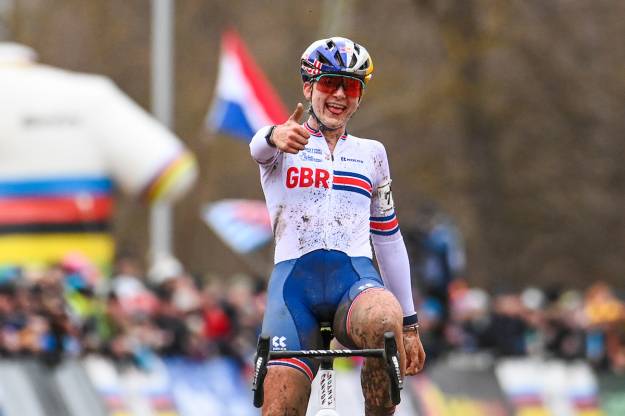Great Britain pair Kye Whyte and Bethany Shriever turned in storming performances to qualify for the semi-finals comfortably, as BMX racing got underway in the Tokyo Olympics.
The Ariake Urban Sports Park was the scene of some predictably thrilling racing but the British pair, both making their Olympic debuts, qualified for Friday’s semi-finals with the minimum of fuss.
The duo came through their respective quarter-final heats looking strong, Whyte finishing second behind Sylvain Andre of France in heat one of the men’s competition and Shriever looking dominant in winning heat three of the women’s event.

With the top four in each of the four heats advancing, after their placings based on three runs, Leytonstone rider Shriever won her first race by storming away from Switzerland’s Zoe Claessens on the final berm, the embankments that are a feature of a BMX course.
Shriever was even more dominant in run two, sprinting past Australia’s Lauren Reynolds in the home straight to open a large winning margin. In run three, with a semi-final place all but guaranteed, the British rider stayed out of trouble to cross the line third.
Whyte, who learned the sport at the legendary Peckham BMX club in London, also looked strong in qualification despite a strong heat that included French pair Andre and Romain Mahieu.
After finishing third behind the French duo in run one, Whyte made an explosive start to run two before being pipped on the line by Andre.
In the third and final run, with his qualification chances looking good, Whyte could afford to ride cautiously, making a strong start to keep out of trouble before finishing fourth.
Friday’s semi-finals consist of two heats, each containing eight riders, with the top four in each heat advancing to the Final later in the day.
Shriever and Whyte will be looking to win a first ever BMX racing Olympic medal for Great Britain with the event a relatively new one on the Olympic schedule, having only become a medal sport in 2008.









